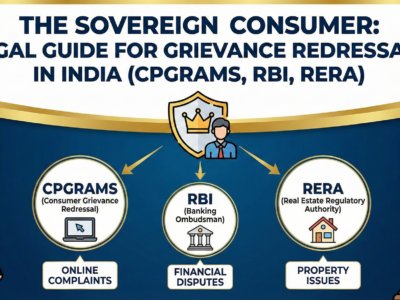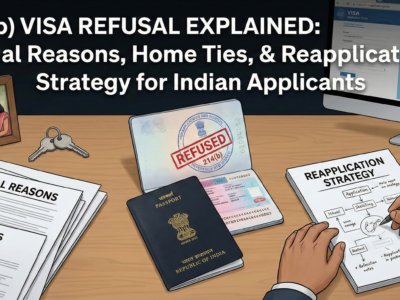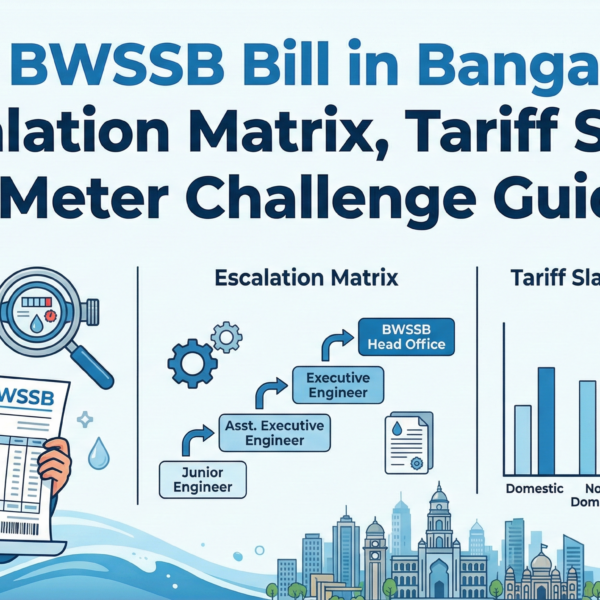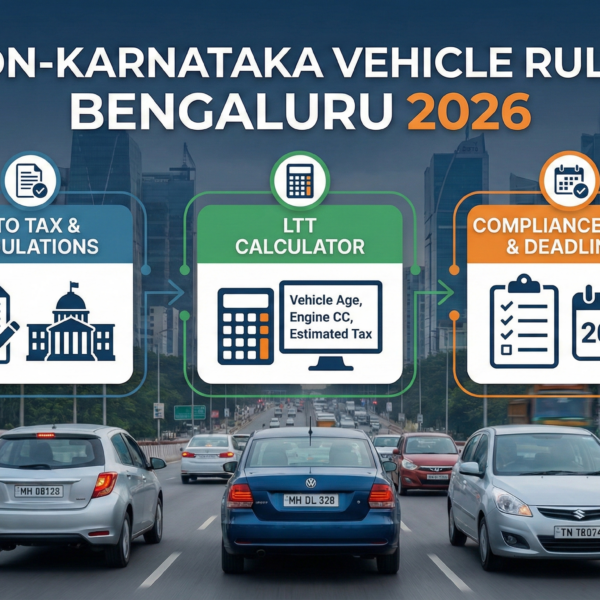Digital Arrest Scam India: A Victim’s Legal Guide to Recovering Money
Across India, a chillingly effective crime is unfolding not in dark alleys, but through phone screens. The “digital arrest” scam has evolved into a national crisis, where sophisticated criminals impersonating CBI and police officials use forged documents and immense psychological pressure to extort crores from innocent citizens. They turn your respect for authority into a weapon against you, creating a virtual prison of fear. This guide, brought to you by evaakil.com, is your comprehensive defence for 2025. Here, we equip you with the knowledge to dismantle the scam, walk you through the critical “golden hour” actions, explain your legal rights under the new BNS laws, and provide a clear roadmap to recovering your lost funds.
The "Digital Arrest" Scam
An exhaustive guide to understanding, fighting, and recovering from India's most sophisticated cyber-fraud.
What is a "Digital Arrest" Scam?
It's a sophisticated form of organized crime where scammers impersonate law enforcement to extort money under the threat of a fake arrest conducted over a video call.
The "digital arrest" scam has become a national crisis, with victims losing crores of rupees daily. Scammers exploit public fear and lack of knowledge about legal procedures. They create a high-pressure, intimidating environment using fake documents, uniforms, and official-looking backdrops to convince victims they are in serious legal trouble. The entire premise is a lie, designed to panic you into transferring your life savings.
Is "Digital Arrest" Legal in India?
Absolutely not. The term is a complete fabrication. Here’s how a real arrest compares to a fake one.
A Lawful Arrest
- ✓ Involves physical detention by an officer.
- ✓ Officer must have visible, clear, and accurate identification.
- ✓ An official Arrest Memo is prepared and signed by a witness.
- ✓ You have the right to inform a family member or friend.
- ✓ Conducted in person, never exclusively over a video call.
A Fake "Digital Arrest"
- ✗ Occurs entirely over Skype, WhatsApp, or phone.
- ✗ Scammers demand you stay on camera for "surveillance."
- ✗ They show forged digital warrants or FIRs.
- ✗ They demand money for "verification" or "bail."
- ✗ They isolate you and prevent you from talking to anyone.
The Scam Unmasked: A 4-Stage Attack
The scam is a carefully orchestrated psychological operation. Here's how it unfolds.
1. Targeting & Initial Contact (15%)
Scammers use data leaks to get your details. They initiate contact via a call or message about a fake parcel or crime linked to your name.
2. Impersonation & Manipulation (35%)
The call is transferred to a fake senior officer (CBI, Police). They force a video call, using uniforms and fake offices to build credibility and fear.
3. Coercion & Isolation (30%)
They declare you "digitally arrested," show forged warrants, and force you to stay on camera for hours, preventing you from seeking help.
4. Extortion & Payout (20%)
Finally, they offer a "way out" – a large payment for "verification" or to "clear your name." Under duress, victims transfer the money.
Your Legal Shield: Key Penal Provisions
While "digital arrest" isn't a real crime, the actions of scammers are. Here are the laws they violate.
Section 111: Organised Crime
The most powerful charge. It frames the scam as a syndicated crime, allowing for severe penalties like life imprisonment. This is not just simple cheating; it's a criminal conspiracy.
Section 204: Personating a Public Servant
Directly targets the core deception of scammers pretending to be police or CBI officials. Carries a minimum sentence of 6 months.
Section 66D: Cheating by Personation
The digital equivalent of impersonation. Specifically criminalizes using a computer or phone to pretend to be someone else to cheat them.
Section 308: Extortion
Putting a person in fear of injury (legal, financial, or reputational) to dishonestly make them pay money. The threat of arrest is a classic form of extortion.
Section 319: Cheating by Personation
An aggravated form of cheating where the deception involves impersonation. The BNS has increased the punishment for this to 5 years.
Section 66C: Identity Theft
Applies when scammers use your personal information (like an Aadhaar number) to make their threats more believable and fraudulent.
Law Update: IPC vs. BNS
The new Bharatiya Nyaya Sanhita (BNS) has replaced the Indian Penal Code (IPC). Here's what changed for these crimes.
| Offence | Old Law (IPC, 1860) | New Law (BNS, 2023) | Key Change |
|---|---|---|---|
| Organised Crime | Not defined (State acts only) | Section 111 | New, powerful provision covering cyber-crime syndicates. |
| Cheating by Personation | Section 419 | Section 319 | Punishment increased from 3 to 5 years. |
| Personating a Public Servant | Section 170 | Section 204 | Punishment increased and a minimum sentence introduced. |
| Cheating (Inducing Delivery of Property) | Section 420 | Section 318(4) | Largely the same, consolidated under a broader cheating section. |
The Golden Hour: Your First Response Protocol
Act fast. The first few hours are critical for getting your money back and catching the criminals. Follow this timeline.
| Timeframe | Action | Contact | Why it's Critical |
|---|---|---|---|
| Immediately | Call the National Cyber Crime Helpline | 1930 | Triggers immediate alerts to banks to freeze the transaction. This is your best chance to stop the money transfer. |
| Immediately | Call your bank's fraud helpline | Your Bank | Initiates the bank's internal fraud containment process. |
| Within 1 Hour | Send a formal email to your bank | Bank's Grievance Email | Creates a time-stamped record, crucial for invoking RBI's zero liability rule. |
| Within 24-72 Hours | File a detailed complaint online | cybercrime.gov.in | Formally registers the crime and starts the official police investigation. |
Evidence is Power
Preserve everything. Your evidence must be admissible in court.
Your Evidence Checklist:
- Scammers' phone numbers
- Bank accounts & UPI IDs used
- Transaction IDs (UTR numbers)
- Screenshots of all chats
- Screenshots of video call interface
- Copies of forged documents
- Call recordings (if any)
- Your bank statement
Crucial Legal Step: The Section 65B Certificate
For your digital evidence (screenshots, files on a pen drive) to be legally valid in court, it MUST be accompanied by a signed certificate under Section 65B of the Indian Evidence Act (now BSA). This certificate confirms the authenticity of the electronic records. Without it, your evidence can be rejected.
Reclaiming Your Money: The Path to Recovery
Getting your money back is possible, but it requires navigating a system of banks, regulators, and payment gateways. Here's the roadmap.
The Verification Void
The scam thrives because it's nearly impossible for a citizen to quickly verify a police officer's identity online. This is a systemic vulnerability.
There is NO single, national, public database to verify a police officer's badge number or ID in real-time.
State police websites are often outdated and inconsistent. Central portals like CCTNS are for internal police use. This information gap is what scammers exploit.
Your Safest Bet: Hang up the suspicious call. Find the official phone number of the district police control room or Superintendent's office from an official government website and call them directly to verify the claim.
The Transnational Threat
Many scams originate from outside India. Scammers often mention "INTERPOL" to sound more intimidating. Here's the reality.
Debunking the INTERPOL Myth
INTERPOL is not a global police force. It has no officers who can arrest you. It is an information-sharing network for the police forces of 196 member countries.
- Any unsolicited call from someone claiming to be "from INTERPOL" is 100% a scam.
- Real international police cooperation is done formally between designated agencies (like the CBI in India) and the police of another country. It is slow and bureaucratic.
- A victim's first and only point of contact should be their local police. The police will decide if international channels need to be used.
The mention of INTERPOL is a scare tactic. Knowing this gives you the power to challenge their fake authority.









